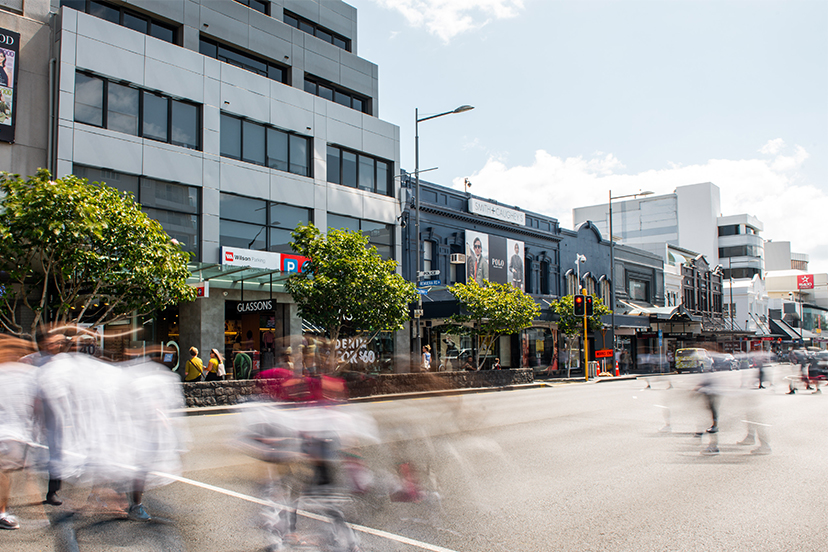
Reading Time: 4 Minutes
As we move through week six and into week seven of Auckland’s lockdown, fearing for what could turn out to be our longest lockdown yet, small business is being squeezed like a stress ball. The pain being felt by business owners is palpable. Right now, they need cashflow. Our economy too, needs cashflow to exist. This fundamental premise seems lost on some Kiwis in fortunate positions, who are quite happy for us to be locked down forever, and somehow think businesses can just “get over it”. However, we don’t have an alternate economic system.
In crude terms, an economy is comprised of innumerable markets, that work together like cogs. There is, for example, a market for buttons, silk, fridge magnets, coffee beans, car tyres, lipstick, running shoes, turkey, screwdrivers and phone chargers. Anything where there is supply and demand. The oil that lubricates the wheels of these markets is money – and without money, the cogs freeze up and stop moving.
We’re starting to see some of these cogs in New Zealand’s economy get stuck. We’re a nation known for small businesses, representing 97% of our ecosystem. But many small business owners are running out of cash, can’t meet their usual credit terms and are losing access to product supplies. As this economic contagion spreads, more cogs will get stuck. Masses of the economy are falling into a cancerous state.
The long-term supply chain issues confronting our country are also worsening. We’ve had ongoing logistics issues at Ports of Auckland, global shipping challenges with canal blockages, and now, industrial action being served over the ditch. Sydney’s Port Botany will strike for 48 hours over this weekend, and Melbourne for 12 hours every Monday, Wednesday, and Friday throughout October - potentially compromising the Christmas trading season and hitting small business owners even harder.
While Minister Kris Faafoi’s announcement of a new clause for rent relief in commercial leases will be welcomed by retail and hospitality tenants, his ministry didn’t consult the property sector. Property owners, some of whom are cash-strapped themselves, will be pushed into a financial black hole. Does the government think all Kiwi property owners are ‘fat cats’ on their yachts, smoking Cuban cigars, throwing money at strippers? Owners with retail portfolios have been battling the empty premises seen in many of our town centres. It’s not all good news for them, they need support too.
And then there’s our hospitality sector - which works in markets of fast turnaround, perishable products, namely food. The whole supply network is out of whack. Some can’t get credit for stock supplies as they have no cash, and therefore don’t even have the option of taking hold of the opportunities (while arguably, barely worth it) of Level 3 takeaways. The cliché “cash is king” has never rung truer.
Auckland Council has expressed good intentions to help the hospitality sector. They recently announced plans for Level 2 support, including extending outdoor trading areas, and adding the lost weeks of lockdown on to outdoor trading licences. But they are acting in isolation from the government.
So, even though your favourite restaurant may spill out to the footpath more than ever before, you’ll only be allowed to enjoy your glass of wine in the area approved for the alcohol licence. It defeats the purpose, will be frustrating for customers, and Auckland Council - despite best intentions - may end up the recipient of a negative backlash.
For new recovery initiatives like these to be successfully implemented, the government needs to work more closely with local councils and be more pragmatic in delivering solutions. Extension of the wage subsidy and resurgence payments into lower alert levels would also be appropriate, given the turmoil business owners have experienced since Delta restrictions were introduced.
We know cases are likely to continue appearing in New Zealand, so personally, I‘d like to see the government operate with a far more laparoscopic approach to managing outbreaks – getting straight to the issue while minimising unnecessary impact on other areas. Let’s look at a suburb-by-suburb model, ring fence affected areas, and send out COVID squads to provide testing and vaccinations. Provision of other wrap-around services for mental health and social support would also help those in need.
Newmarket has lost over $60 million during lockdown. That’s $60 million not flowing through the economy - from the restrictions of just six weeks.
The biggest trading season of the year is fast approaching. We desperately need to find a way to squash COVID quickly, but without destroying our economy and the livelihoods of business owners and their employees at the same time.
Mark Knoff-Thomas
CEO, Newmarket Business Association
Tags: NBA News